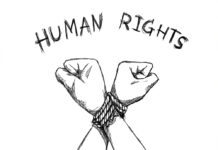Dr. Rebecca Murphy and a team of researchers gathered the perspectives of service users who had been involuntarily hospitalized in Ireland. Their responses illuminated the harmful effects of coercion while also suggesting ways in which providers can carry out the process respectfully and humanistically. In an editorial reviewing Murphy et al.’s study, Dr. Larry Davidson from Yale University wrote:
“Unlike in previous research, in this study the researchers identified aspects of participants’ experiences that mitigated to some degree the deleterious effects of coercion, suggesting directions for improvements in practice, even when interventions may need to be imposed on people involuntarily.”

Concerns about human rights violations and the potentially deleterious effects resulting from involuntary hospitalization have previously been raised (see MIA report). In particular, critics have highlighted how compulsory admission puts power over individual liberties in the hands of the mental health system. In Ireland, the response to these concerns has been to enact legislation aimed at ensuring that providers are adhering to international standards of human rights. The Mental Health Act (MHA) of 2001 is one such example.
In this study, however, the researchers depart from traditional quantitative methods used to investigate involuntary admission, and instead qualitatively explored service-users’ reported experiences throughout the coercive care process, including the transfer and postdischarge phases.
The sample consisted of 50 participants who had previously taken part in a larger quantitative study examining attitudes toward admission and care. The study focused on attaining maximum variation rather than being epidemiologically representative. The most common diagnosis featured among these participants was “nonaffective psychotic disorder” (26%).
Data were collected between the years 2011 and 2014 via an in-person, audio recorded interview that featured certain questions consistently, but also allowed for flexibility to organically delve into particular points of conversation as they arose. This semi-structured, qualitative interview process allows for unanticipated findings to surface. Participant responses were then analyzed thematically.
Service-users’ experiences were captured in four major themes, (1) feeling trapped and coerced, (2) lack of emotional and informational support, (3) admission-induced trauma, and (4) person-centered encounters.
The first theme, “feeling trapped and coerced,” was identified throughout service-user narratives likening their admission experiences to imprisonment. Many described feeling an initial shock, and a sense of being “ambushed” at the time when plans to admit them were disclosed. They described that stakeholders involved in the process were firm and sometimes physically forceful. Many experienced having been given an ultimatum. Not only did they report feeling that they had no choice to comply, but described how their personal opinions and concerns went ignored.
“From these participants’ perspective, the duration of their involuntary admission was shrouded in uncertainty, impinged on their civil rights, and offered limited opportunities for involvement, negotiation, or personal control.”
Building off of the first theme, the second, “lack of emotional and informational support,” highlights the ways in which those who were admitted felt that the reasoning behind the decision and plans for their care moving forward were not sufficiently explained. This lack of information about the process adds to the experience of feeling unheard and the feeling that the psychiatrist’s perspective took primacy over their personal input.
Service-users also described experiencing feelings of terror resulting from lack of emotional support and lack of information throughout the process. These poignant stories featured recounts of being transferred to the hospital, sometimes involving physical restraint, as well as what they experienced before, during, and after tribunal. Service-users elaborated on feelings of being frightened and disconcerted, because no one familiar was present, while also remarking on the absence of any supportive and informative provider.
In the “admission-induced trauma” theme, the researchers call attention to the experiences of 19 out of the 50 participants who reported “a detrimental and prolonged impact on their mental health” because of the involuntary admission. Some demonstrated symptoms of trauma and a worsening of feelings postdischarge.
“These participants recalled experiencing panic, flashbacks, and nightmares about events that occurred during the transfer and admission process, including persistent thoughts about their experience or nightmares regarding being physically restrained or coerced in their own homes.”
Additionally, participants felt debilitating levels of fear surrounding surveillance and reduced trust, safety, and confidence. At times, these emotions were re-experienced and brought on by day to day interactions post hospitalization, inducing an anxiety that their personal liberties were on the verge of being jeopardized through others’ constant monitoring. Sadly, some described the feeling that their words and actions were now being understood by friends and family exclusively “through the lens of mental illness.”
However, not all narratives were absent of collaboration, received information, and genuine experiences of being cared for, as exemplified by the fourth theme, “person-centered encounters.” In many instances, service-users describe that their transfer to the hospital was approached in a calm and considerate manner during which their opinions were actively included.
Others described how the process was reported in an understandable way, noting that they received adequate information and felt supported at times during their hospital stay. Yet, it is important to recognize, the authors write, that positive elements of narratives were consistently attributed to the characteristics of a specific provider rather than a culture emphasized systemically.
“However, rather than reflecting a systemic culture, experiences of humanizing care frequently appeared to depend on a particular staff member. As a result, these positive and empowering experiences were not consistently evident across all stages of participants’ involuntary admission.”
Dr. Larry Davidson underscores the importance of this study’s findings by calling attention to their implications:
“What Murphy and colleagues identify and illustrate is that how people are treated during an involuntary admission can either reinforce or help to overcome the traumatic effects of coercion. The kind of care people receive, even when against their will, makes an important difference both in the effectiveness of the care offered and in the degree of engagement that the care is able to secure.”
This point, he states, is critical in ensuring that in times of distress mandated treatment does not traumatize people, alienating them from care that could be beneficial and/or needed. He concludes:
“More than anything else, this important study provides insight into the fact that coercion need not be disrespectful and dehumanizing. To the degree that advocates of coercive care base their advocacy on the belief that people are too sick to recognize their need for care, this should be a most welcome insight.”
****
Davidson, L. (2017). Minimizing Coercion Through Person-Centered Care. Psychiatric Services, 68(11), 1093-1093.
Murphy, R., McGuinness, D., Bainbridge, E., Brosnan, L., Felzmann, H., Keys, M., … & Higgins, A. (2017). Service users’ experiences of involuntary hospital admission under the Mental Health Act 2001 in the Republic of Ireland. Psychiatric Services, appi-ps.















This study is a crucial part to understanding the harms of coercive psychiatry, but its conclusion is deeply disturbing. The idea that coercion, which by definition is harmful, can ever be justified or innocuous is insulting. We would never speak about–let alone entertain the idea–other forms of coercion (e.g. rape) in these terms, so why does psychiatry get a free pass?
Report comment
Agreed. In the journal I kept in “hospital” as an “involuntary patient”, I referred to my captors as kidnappers, jailers and torturers and I referred to the experience as rape. I was terrified, and even reading this article has brought back the trauma of it all.
The experience was so traumatic and barbaric that it dumped me into my first ever and only “psychosis” at age 50 and into forced drugging, a very nearly successful suicide within a month or two of my release, and another coerced “hospital stay”.
That was 2004-05. In 2007 my psychiatrist threw me out of his office screaming at me when all I had done was turn up for a scheduled appointment. Twelve years on and I have been off all of those drugs of torture (that I was told I’d need for the rest of my life) for seven years, have moved cities because I could no longer feel safe in the city where I spent over 50 years, and have built new social networks and friendships.
I HATE and fear doctors. No more “medical” treatment for me.
Report comment
Agree with the commenter above ‘a girl called colleen’. The conclusion ignores entirely one whole area of study and findings, the traumatic effect of coercion in the mh system per se. There is no way that better packaging can ever negate that and it is offensive to try, akin to the old misogynist advice to women, ‘if rape is inevitable relax and enjoy it.’
I will point out two additional ways that the post here, or perhaps the study itself if the author is following the study’s self-characterization, is offensive to survivors of forced psychiatric interventions and promotes an incorrect standard of human rights.
1) To refer to coercion of ‘service users’ is offensive and misleading, as it characterizes survivors of forced unwanted interventions as people who are ‘using services.’ If it’s unwanted I’m not using it, such language obscures agency and victimization.
2) To say that ‘human rights violations … *may result from* involuntary hospitalization’ is to imply that involuntary hospitalization itself does not violate human rights. This is incorrect. Ireland is a state party to the Convention on the Rights of Persons with Disabilities, which is authoritatively interpreted to prohibit involuntary hospitalization/institutionalization based on actual or perceived psychosocial disability. Recently the CRPD treaty body said in a General Comment on Article 19, living independently and being included in the community (excerpts, with ** around the most pertinent sentences):
27. Legal personality and legal agency are the basis of the realization of independent living within the community for persons with disabilities. Article 19 is, therefore, linked to the recognition and exercise of legal personality and legal capacity as enshrined in article 12 of the Convention, and further explained in the Committee’s general comment No. 1 (2014) on equal recognition before the law. *Further, it is linked to the absolute prohibition of detention on the basis of disability as enshrined in Article 14 and elaborated in the respective guidelines.*
48. The obligation [to respect the right to live independently and be included in the community] also requires States parties to repeal and refrain from enacting laws, policies and structures that maintain and create barriers in access to support services as well as general facilities and services. *It also entails the obligation to release all individuals who are being confined against their will in mental health services or other disability-specific forms of deprivation of liberty.* It further includes the prohibition of all forms of guardianship and the obligation to replace substituted decision-making regimes by supported decision-making alternatives.
83. Involuntary institutionalization on the basis of impairment or associated circumstances such as presumed “dangerousness” and other factors as elaborated in the Committee’s guidelines on article 14 is often caused or increased by a lack of disability specific support services. Implementing article 19 thus will ultimately prevent violation of article 14.
Advocates in Ireland and everywhere need to know their human rights and defend the full meaning of the CRPD, and not be misled by the professions that are still invested in coercion.
For those of us in countries that haven’t yet ratified the CRPD, take heart in knowing that other parts of the UN are gradually coming around to the same point of view, as the Working Group on Arbitrary Detention showed in their recent report on the US. I blogged about this and link to the WGAD report and recommendations, here: https://www.madinamerica.com/2017/10/un-to-usa-forced-treatment-prohibited/.
Report comment
Advocates in Ireland do not know or defend the full meaning of the CRPD this is a major problem. Involuntary institutionalization means that you do not have any ‘human rights’ what is written in the literature or the mental health act is never really applied. You are lead to believe that you have a voice but in reality you have none. I see my detention as imprisonment for a crime that I did not commit without the possibility of ever freeing myself. Freedom only comes when you are let go by your captivates not by your human rights. Problem here in Ireland is that when you are kidnapped by the mental health system you cannot find anyone to legally represent you. You are given a tribunal where they pretend that you have a voice, your legal representative whom is provided by the mental health commission does not even make a case for your freedom. Tribunals only support the psychiatrist it just ticks the boxes fraudulently to confirm that you have been given your human rights. All legal representatives are cherry picked by the mental health commission, they are not going to lose this lucrative deal by going against protocol and actually fighting for their clients. The whole set up is one big fraud and goes completely against the patients right, the only way that this will work is completely banning involuntary imprisonment, kidnapping, drug enforcement, abuse, torture etc.
Report comment
“…….likening their admission experiences to imprisonment.”
That’s because it was.
Report comment
Ridiculous. So psychiatric coercion needs to be “respectful” and “humane”? I will tell you what we really need. We need to be avenged. Criminals must be punished relentlessly.
Psychiatrists and their subordinates must be punished as if they were neither psychiatrists nor subordinates. Their actions must be appreciated in complete independence from their official function.
Thus, forced hospitalization must be punished as kidnapping and forcible confinement. Forced treatment, isolation and restraint must be punished as torture.
The fact it is “legal” today will not be an excuse, but rather an aggravating circumstance. They are complicit in an authoritarian state, and the “Nuremberg Defense” will not be tolerated.
Report comment
There is an Prison Abolition movement. Maybe we should work with them as allies?
Report comment
“Their responses illuminated the harmful effects of coercion while also suggesting ways in which providers can carry out the process respectfully and humanistically.”
Well, the biggest way in which “the harmful effects of coercion” could be avoided is not to resort to them at all. There is no ‘respectful, humanistic’ form of coercion. The word polite has to be related to the word politic, and I just don’t think, probably the point of this survey, that anybody should become inured to the facts of force violating people’s human rights.
Kind “respectful” coercion? Who are these folks trying to kid? Certainly not me. Deceit is still deceit, and asking everyone to lie for the sake of an illusion is going a bit far. It is what it is, and what it is is what they used to call it in more honest times, incarceration.
When people are physically harmed by forced treatment, by nonconsensual and coercive mistreatment, the questions put forth by your study are nothing but offensive. No, emphatically, no. Forced treatment doesn’t have a good side. Picaresque prisons, not here. No. Thank you. No.
Report comment
One of the most vicious, perverse and harmful aspects of psychiatry is its hypocrisy. Indeed, when an institution presents itself openly as a punishment, like prison, you know what to expect, and you can prepare your psychological defense for your stay.
But in psychiatry, psychiatrists start by disarming you psychologically. They present themselves as doctors. They declare you unfit, invalid. They promise to take care of you. Then they brutalize you like a sub-human: you are drugged until drooling on the ground, you are locked in an isolation cell, you are tied to a bed. And again and again, they say they take care of you, they do you good, and so on.
It’s the pinnacle of vice, the sadistic perfection. This is the maximum double bind of the executioner.
The ethnopsychiatrist Devereux emphasizes trauma is not proportional to the violence, but to the relationship between psychological and cultural defenses on the one hand and the violence on the other. Thus, the more the psychiatrists present themselves as good, respectable, respectful and human – in contradiction with what they really are – more powerful will be the trauma, more serious and more prolonged will be the psychosis.
Report comment
My take on this is that they are conducting this study to try and figure out how they can make people being treating involuntarily feel more comfortable about being treated involuntarily and complain less. The last thing on the “researchers” minds would be ending involuntary treatment. That is not, and can’t be, their aim. If you want to end forced treatment, you don’t conduct a study of this sort in the first place. 1. You don’t engage in the practice, and 2. if you do, you get out of it. Asking prisoners how you can get them to feel better about their imprisonment is not releasing them, and it never will be.
According to the MIA schedule of events, in the UK Maudsley is slated to have a sold out debate on the Mental Health Act. If abolition doesn’t enter into the discussion, I would consider such a debate a total gip. Any reform versus no reform debate that doesn’t allow abolition into the picture isn’t much of a debate at all. Abolition isn’t reform. It’s the end of the thing that others would have reformed. We don’t need a reform of human rights violations, we need an end to them. Depriving innocent people of their liberty is a human rights violation. So much for reform.
Report comment
$30,000 was defrauded from my private health insurance company by this now FBI convicted, forced treatment doctor.
https://www.justice.gov/usao-ndil/pr/oak-brook-doctor-convicted-kickback-scheme-sacred-heart-hospital
http://www.chicagobusiness.com/article/20130523/NEWS03/130529891/step-by-step-in-the-sacred-heart-hospital-case
Thankfully, I avoided the unneeded tracheotomy for the non-existent “chronic airway obstruction” I was fraudulently admitted with, according to my medical records. Advocate “Good” Samaritan hospital was never able to medically explain how a non-existent “chronic airway obstruction” magically turned into a “mental illness” however, which they believed required a massive “snowing,” by the still practicing, but also criminal, Dr. Humaira Saiyed. Instead, they proclaimed all of Kuchipudi’s and Saiyed’s crimes to be “appropriate medical care.” Not!
Forced treatment should be made illegal.
Report comment